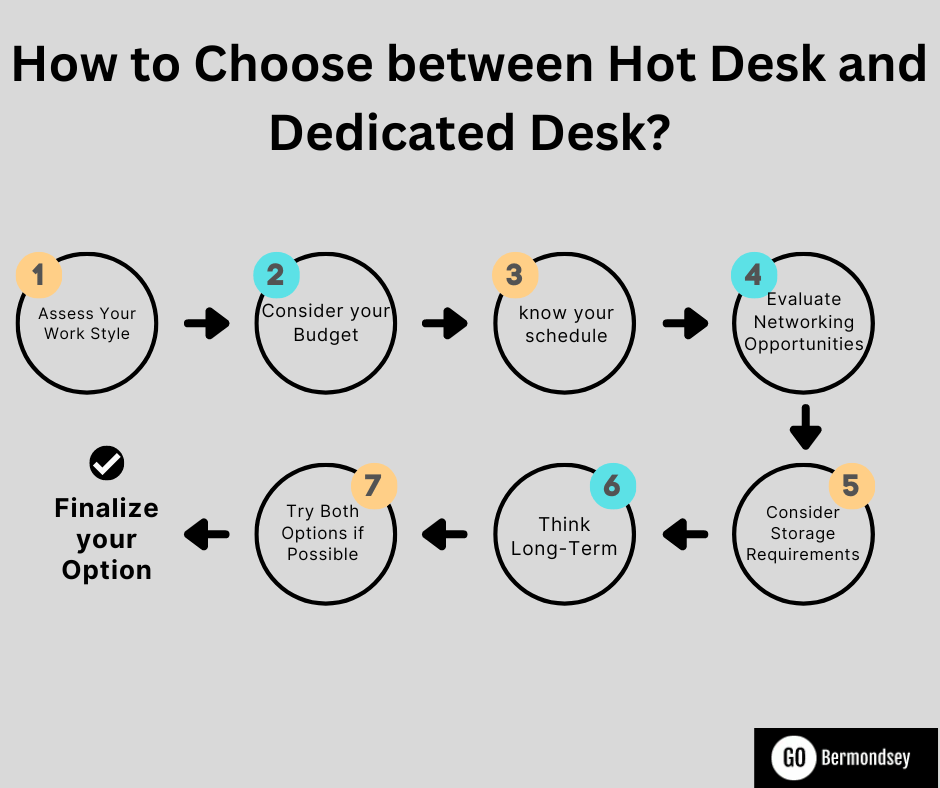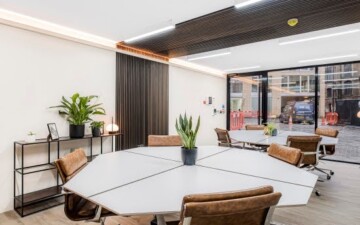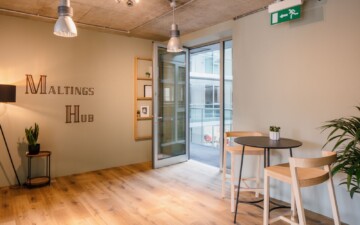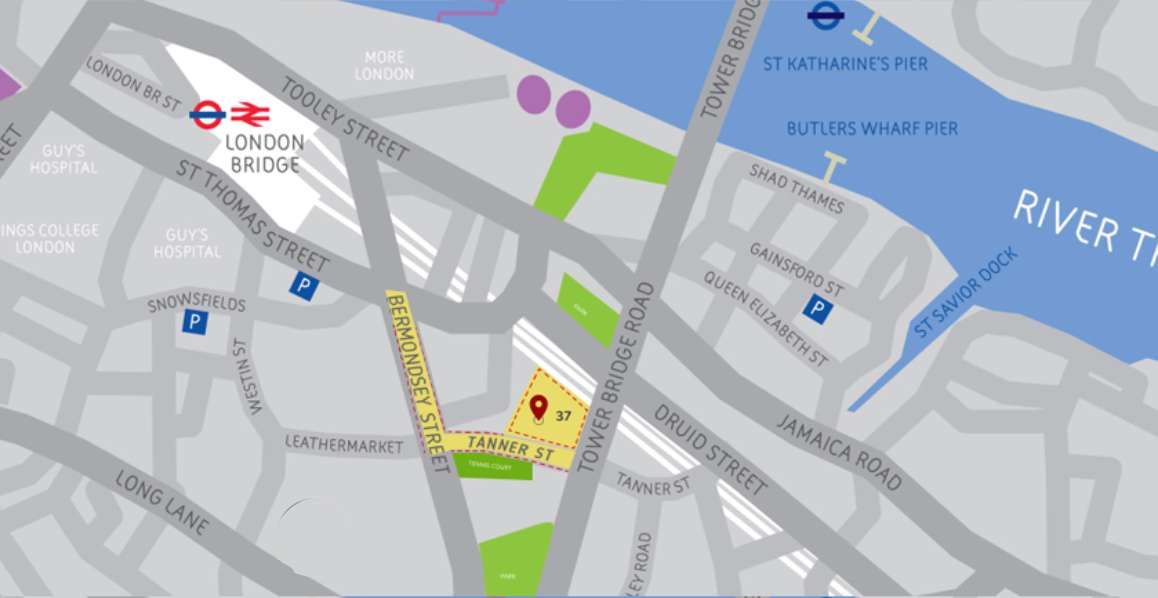Hybrid and work from home arrangements are rapidly beginning to replace the conventional office set-up, fuelling a surge in demand for co-working spaces. According to the Global Co-Working Growth Study 2020, an estimated 5 million people worldwide will be based in co-working spaces by 2024, signalling the widespread popularity of flexible working practices. Affordable and practical, co-working spaces offer businesses and entrepreneurs different working arrangements based on their needs and preferences. There are 2 key types of co-working space arrangements, namely the flexi desk or hot desk, and the dedicated desk.
What is a Dedicated Desk?
A dedicated desk as the name suggests is a designated workspace that is exclusively assigned to a specific individual or company. Unlike hot desking, where individuals use any available desk on a first-come-first-served basis, a dedicated desk provides a consistent and reserved spot for the user.
What are the Features of Dedicated Desk?
Key features of a dedicated desk in a coworking space include:
- Reserved Space: The desk is specifically allocated to one person or team, ensuring that they have a consistent and fixed place to work.
- Personalization: Users can often personalize their dedicated desk with their belongings, making it feel more like a permanent office space.
- 24/7 Access: Depending on the coworking space’s policies, individuals with a dedicated desk often have 24/7 access to their workspace, allowing for flexible working hours.
- Storage: Dedicated desks typically come with some form of storage, such as lockable drawers or cabinets, allowing users to keep their belongings secure.
- Community Access: Users still have access to shared amenities and the community aspect of the coworking space, allowing for networking and collaboration with others.
Who should choose a Dedicated Desk?
Dedicated desks are suitable for individuals or small teams who prefer a more consistent and personalized workspace within a coworking environment, offering a balance between flexibility and a sense of ownership.
What is a Flexi Desk?
Flexi desk, also known as a hot desk, refers to a flexible seating arrangement where individuals can use any available desk on a first-come-first-served basis. Unlike a dedicated desk, which is assigned to a specific person or team, a hot desk allows different users to occupy the same desk at different times.
What are the Features of a Hot Desk?
Key features of a hot desk in a coworking space include:
- Flexibility: Users have the freedom to choose any available desk when they arrive at the coworking space. There’s no assigned seating, promoting a dynamic and adaptable working environment.
- Variety: Depending on the coworking space, users may experience a variety of work environments by sitting in different locations each day, which can foster creativity and collaboration.
- Cost-Effective: Hot desking is often a more cost-effective option than dedicated desks, as users pay for the time, they use rather than having a fixed, reserved space.
- Networking Opportunities: With a changing seating arrangement, individuals have the chance to interact with a diverse group of coworkers, potentially leading to networking opportunities and collaboration.
- Limited Personalization: Since hot desks are shared among multiple users, there is limited, or no personalization allowed. Users typically bring their essentials with them each day.
Also read, how to choose the perfect office space in london?
Who should choose a Hot Desk?
Hot desking is suitable for individuals or teams with varying schedules, freelancers, or those who prefer a more dynamic and collaborative work environment without the need for a dedicated, fixed workspace.
What is the Difference between Hot Desk vs Dedicated Desk?
Many business owners find themselves in a dilemma over whether to choose a hot desk or dedicated desk, especially in terms of how either option could benefit the company and its employees. The table below broadly elucidates the advantages and drawbacks of Flexi Desk vs Dedicated Desk:
|
Flexi Desk |
Dedicated Desk |
| Pros |
Flexible accommodation |
Personalized workspace |
|
Promotes collaboration |
Enhanced coordination within teams |
|
Affordable with flexible rentals |
Familiar and productive work setup |
|
Variety and dynamism in work environments |
Aesthetically clutter-free |
| Cons |
Potential for disruptions and chaos |
Higher cost, less flexibility |
|
Limited privacy |
Restricted flexibility, potential inconvenience |
|
Hierarchy disruption and communication gaps |
Limit on scalability for growing companies |
How to Choose between Hot Desk and Dedicated Desk?
Choosing between a hot desk and a dedicated desk in a coworking space depends on your individual preferences, work habits, and specific needs. Here’s a step-by-step guide to help you make a decision:
- Assess Your Work Style: If you thrive on variety and enjoy changing your workspace regularly, a hot desk might be suitable. If you prefer a consistent and personalized workspace, a dedicated desk could be more fitting.
- Consider Budget Constraints: Hot desks are often more cost-effective as you pay for the time you use, whereas dedicated desks might be pricier due to the reserved nature of the space. Evaluate your budget and determine which option aligns better with your financial considerations.
- Reflect on Flexibility Needs: If you have flexible working hours or travel frequently, a hot desk provides the flexibility to adapt to different schedules and locations. And if you prefer having a fixed spot to work every day, a dedicated desk offers that consistent space.
- Evaluate Networking Opportunities: If networking and collaborating with various professionals are important to you, a hot desk can expose you to a diverse coworking community. And if you prioritize a more secluded and personal environment, a dedicated desk may offer a sense of privacy.

- Consider Storage Requirements: If you need storage for personal items or work materials, a dedicated desk often comes with lockable drawers or cabinets. Hot desks typically do not offer dedicated storage space, so assess your storage needs.
- Think Long-Term: Consider your future growth and how your work habits might evolve. Choose an option that aligns with both your current and potential future needs.
- Try Both Options if Possible: Some coworking spaces may allow you to switch between hot desks and dedicated desks based on your evolving preferences. If possible, try both and see which one suits you best.
Ultimately, the choice between a hot desk and a dedicated desk is a personal one. Assessing your work habits, budget, and preferences will help you make an informed decision that enhances your overall work experience in a coworking environment.
Also read, What is a flexible workspace? Why is it the right choice for startups?
Post-COVID Considerations
While both dedicated desks and flexi desks constitute sensible workplace solutions, businesses adapting to post-COVID work patterns may find the latter more beneficial. By providing more spontaneity and agility, hot-desking presents an excellent option to companies looking to support flexibility and enhance innovation while saving costs.
Featured Co-Working Space: Garden Office Bermondsey in London:
Garden Office Bermondsey’s rented office space in London offers businesses a number of options including flexi-desks, private offices and meeting rooms. With its delightful heritage exterior and sleek contemporary interiors, this charming co-working space promises utility and aesthetic value in equal measure. Additionally, businesses are free to decide whether to book for as much as five years, or as little as an hour, making it an ideal option for start-ups, scale-ups, freelancers, and digital nomads who do not wish to be bound to traditional lease agreements.






